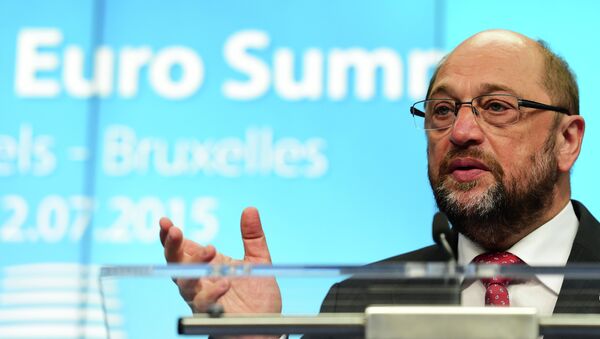“The Greek government made proposals which are very similar to the proposals made by [European Commission President Jean-Claude] Juncker at the end of the phase of the expiration of the second program. So it’s a surprise for me and all of my colleagues that these proposals made to the Greek government that were partially refused now are tabled. This explains perhaps a lot of questions raised by this surprising development,” Schulz said at a press conference in Brussels.
Schulz said that Greece’s ability to deliver what it is promising and the readiness of Eurozone members to understand the “very specific and dynamic” situation in Greece need to be taken into account in order to find a compromise.
“Not to ask too much, but to deliver what was promised in a binding way, so I think this is the bridge for both sides. Not to overstretch the requests. Yes, there is perhaps a certain way, something we have to reduce, but on the other hand, the reliability of the Greek government should be guaranteed also,” Schulz said.
On July 5 referendum, Greek voters rejected the lenders-proposed bailout plan. On Thursday, Athens presented its creditors with its own proposals on how to deal with the debt.
On Sunday, the leaders of the eurozone are discussing the Greek economic crisis in Brussels. Simultaneously, the eurozone finance ministers are trying to reach an agreement on launching talks on Greece’s new bailout.
Several European leaders, including German Chancellor Angela Merkel, have described Greek reforms proposals as insufficient.



